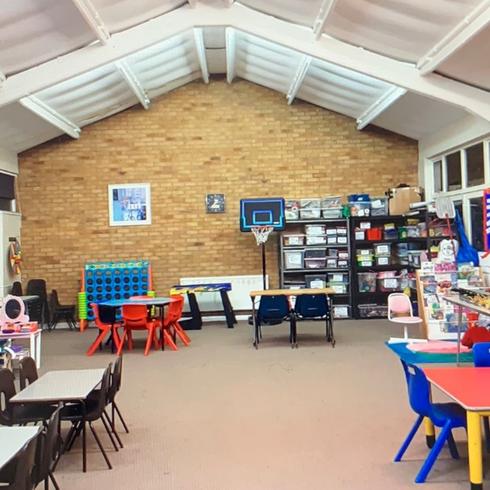


Safeguarding Policy
Safeguarding children
Child protection policy
At just Kidding After school club, we work with children, parents, external agencies, and the community to ensure the welfare and safety of children and to give them the very best start in life. Children have the right to be treated with respect, be helped to thrive and be safe from any abuse in whatever form.
We support the children within our care, protect them from maltreatment and have robust procedures in place to prevent the impairment of children from risk of racialisation and promote acceptance and tolerance of other beliefs and cultures. Safeguarding children is wider subject than the elements covered within this single policy, there fore this document should be used in conjunction with the club’s other policies and procedures.
This policy works alongside these other specific policies for child protection:
- Prevent duty and radicalisation
- Locked after children
- Monitoring staff behaviour
- Social networking
- Mobile phone and electronic device use
- Safe recruitment of staff
- Disciplinary
- Grievance
- Promoting positive behaviour
LEGAL FRAMEWORK AND DEFINITION OF SAFEGARDING
Childcare Act 1989 and 2004
Childcare 2006
Safeguarding Vulnerable Groups Act 2006
Children and social work Act 2017
The statutory Framework for the Early Year Foundation stage (EYFS) 2017
Working together to safeguard children Act 2018
Keeping children safe in education Act 2018
Data protection Act 2018
What to do if you are worried about a child being abused 2015
Counter-terrorism and security Act 2015
Inspecting safeguarding in the Early Years, Education and skills setting 2019
Prevent Duty 2015.
At Just Kidding after School club all staff, students and visitor are made aware of and to adhere to the policy.
Safeguarding and promoting the welfare of children, in relation to this policy is defined as:
- Protecting children from maltreatment
- Preventing the impairment of children’s health or development
- Ensuring that children are growing up in circumstances consistent with the provision of safe and effective care
- Taking action to enable all children to have the best outcomes.
(Definition taken from the HM Government document ‘Working together to safeguard children 2018).
Policy intention
To safeguard children and promote their welfare we will:
- Create an environment to encourage children to develop a positive self-image
- Provide positive role models and develop a safe culture where staff are confident to raise concerns about professional conduct
- Support staff to notice the softer signs of abuse and know what action to take
- Encourage children to develop a sense of independence and autonomy in a way that is appropriate to their age and stage of development
- Provide a safe and secure environment for all children
- Promote tolerance and acceptance of different beliefs, cultures and communities
- Help children to understand how they can influence and participate in decision-making and how to promote British values through play, discussion and role modelling
- Always listen to children
- Provide an environment where practitioners are confident to identify where children and families may need intervention and seek the help they need
- Share information with other agencies as appropriate.
Just Kidding After School Club is aware that abuse does occur in our society,
and we are vigilant in identifying signs of abuse and reporting concerns. Our practitioners have a duty to protect and promote the welfare of children. Staff may often be the first people to identify that there may be a problem. They may well be the first people in whom children confide information that may suggest abuse or to spot changes in a child’s behaviour which may indicate abuse.
Our prime responsibility is the welfare and well-being of each child in our care. As such we believe we have a duty to the children, parents and staff to act quickly and responsibly in any instance that may come to our attention. This includes sharing information with any relevant agencies such as local authority services for children’s social care, family support, health professionals including health visitors or the police. All staff will work with other agencies in the best interest of the child, including as part of a multi-agency team, where needed
Just Kidding After School Club is committed to building a ‘culture of safety’ in which the children in our care are protected from abuse, harm and radicalisation.
The Club will respond promptly and appropriately to all incidents or concerns regarding the safety of a child that may occur. The Club’s child protection procedures comply with all relevant legislation and with guidance issued by Waltham Forest referral and advice team: Waltham Forest Multi-Agency Safeguarding Hub (Mash) and The Local Authority Designated Officer (LADO).
There is always a Designated Safeguarding Lead (DSL) available while the Club is in session. The DSL coordinates safeguarding, and child protection issues and liaises with external agencies (eg Social Care and Ofsted).
The Club’s DSL is : Ines Damteng
The Deputy / on-call DSL is:
IN CASE OF:
Child abuse and neglect
Child abuse is any form of physical, emotional, or sexual mistreatment or lack of care that leads to injury or harm. An individual may abuse or neglect a child directly, or by failing to protect them from harm. Some forms of child abuse and neglect are listed below.
- Emotional abuse is the persistent emotional maltreatment of a child so as to cause severe and persistent adverse effects on the child’s emotional development. It may involve making the child feel that they are worthless, unloved, or inadequate. Some level of emotional abuse is involved in all types of maltreatment of a child, though it may occur alone.
- Physical abuse can involve hitting, shaking, throwing, poisoning, burning, drowning, suffocating or otherwise causing physical harm to a child. Physical harm may be also caused when a parent or carer feigns the symptoms of, or deliberately causes, ill health to a child.
- Sexual abuse involves forcing or enticing a child to take part in sexual activities, whether or not the child is aware of what is happening. This can involve physical contact, or non-contact activities such as showing children sexual activities or encouraging them to behave in sexually inappropriate ways.
- Neglect is the persistent failure to meet a child’s basic physical and emotional needs. It can involve a failure to provide adequate food, clothing and shelter, to protect a child from physical and emotional harm, to ensure adequate supervision or to allow access to medical treatment.
Signs of child abuse and neglect
Signs of possible abuse and neglect may include:
- significant changes in a child’s behaviour
- deterioration in a child’s general well-being
- unexplained bruising or marks
- comments made by a child which give cause for concern
- reasons to suspect neglect or abuse outside the setting, eg in the child’s home, or that a girl may have been subjected to (or is at risk of) female genital mutilation (FGM), or that the child may have witnessed domestic abuse
- inappropriate behaviour displayed by a member of staff, or any other person. For example, inappropriate sexual comments, excessive one-to-one attention beyond the requirements of their role, or inappropriate sharing of images.
If abuse is suspected or disclosed
When a child makes a disclosure to a member of staff, that member of staff will:
- reassure the child that they were not to blame and were right to speak out
- listen to the child but not question them
- give reassurance that the staff member will take action
- exact words spoken by the child (word for word) and non-verbal communication
- record the incident as soon as possible (see Logging an incident below).
If a member of staff witnesses or suspects abuse, they will record the matter straightaway using the Logging a concern form. If a third party expresses concern that a child is being abused, we will encourage them to contact Social Care directly. If they do not do so, we will explain that the Club is obliged to and the incident will be logged accordingly.
Female genital mutilation (FGM)
FGM is an illegal, extremely harmful practice and a form of child abuse, and is therefore dealt with as part of our existing safeguarding procedures. All of our staff receive training in how to recognise when girls are at risk of FGM, or may have been subjected to it.
If FGM is suspected or disclosed
We will follow the same procedures as set out above for responding to child abuse.
Peer-on-peer abuse
Children are vulnerable to abuse by their peers. Peer-on-peer abuse is taken seriously by staff and will be subject to the same child protection procedures as other forms of abuse. Staff are aware of the potential uses of information technology for bullying and abusive behaviour between young people.
Staff will not dismiss abusive behaviour as normal between young people. The presence of one or more of the following in relationships between children should always trigger concern about the possibility of peer-on-peer abuse:
- Sexual activity (in primary school-aged children) of any kind, including sexting
- One of the children is significantly more dominant than the other (eg much older)
- One of the children is significantly more vulnerable than the other (eg in terms of disability, confidence, physical strength)
- There has been some use of threats, bribes or coercion to ensure compliance or secrecy.
If peer-on-peer abuse is suspected or disclosed
We will follow the same procedures as set out above for responding to child abuse.
Extremism and radicalisation
All childcare settings have a legal duty to protect children from the risk of radicalisation and being drawn into extremism. There are many reasons why a child might be vulnerable to radicalisation, eg:
- feeling alienated or alone
- seeking a sense of identity or individuality
- suffering from mental health issues such as depression
- desire for adventure or wanting to be part of a larger cause
- associating with others who hold extremist beliefs
Signs of radicalisation
Signs that a child might be at risk of radicalisation include:
- changes in behaviour, for example becoming withdrawn or aggressive
- claiming that terrorist attacks and violence are justified
- viewing violent extremist material online
- possessing or sharing violent extremist material
If a member of staff suspects that a child is at risk of becoming radicalised, they will record any relevant information or observations on a Logging a concern form, and refer the matter to the DSL.
Logging a concern
All information about the suspected abuse or disclosure, or concern about radicalisation, will be recorded on the Logging a concern form as soon as possible after the event. The record should include:
- date of the disclosure, or the incident, or the observation causing concern
- date and time at which the record was made
- name and date of birth of the child involved
- a factual report of what happened. If recording a disclosure, you must use the child’s own words
- name, signature and job title of the person making the record.
The record will be given to the Club’s DSL who will decide on the appropriate course of action.
For concerns about child abuse, the DSL will contact Social Care. The DSL will follow up all referrals to Social Care in writing within 48 hours. If a member of staff thinks that the incident has not been dealt with properly, they may contact Social Care directly.
For minor concerns regarding radicalisation, the DSL will contact Waltham Forest Multi-Agency Safeguarding Hub (Mash) call on 02084962310. For more serious concerns the DSL will contact the Police on the non-emergency number (101), or the anti-terrorist hotline on 0800 789 321. For urgent concerns the DSL will contact the Police using 999.
Allegations against staff
If anyone makes an allegation of child abuse against a member of staff:
- The allegation will be recorded on an Incident record Any witnesses to the incident should sign and date the entry to confirm it.
- The allegation must be reported to the Local Authority Designated Officer (LADO) and to Ofsted. The LADO will advise if other agencies (eg police) should be informed, and the Club will act upon their advice. Any telephone reports to the LADO will be followed up in writing within 48 hours.
- Following advice from the LADO, it may be necessary to suspend the member of staff pending full investigation of the allegation.
- If appropriate, the Club will make a referral to the Disclosure and Barring Service.
Informing parents
Parents are normally the first point of contact. If a suspicion of abuse is recorded, parents are informed at the same time as the report is made, except where the guidance of the local authority children’s social care team/police does not allow this. This will usually be the case where the parent or family member is the likely abuser or where a child may be endangered by this disclosure. In these cases, the investigating officers will inform parents.
Whistle blowing
All staff working with children has the responsibility to safeguarding children’s welfare within the setting. If you recognise that there may be a problem, it is the duty of the staff member to bring it to the attention of the senior management or any outside agencies that you feel will be relevant (all key contacts are at the back of this policy). For further details please refer to the whistle blowing policy.
Role of the Designated Lead Officer:
Promoting awareness among staff
The Club promotes awareness of child abuse and the risk of radicalisation through its staff training. The Club ensures that:
- the designated DSL has relevant experience and receives appropriate training in safeguarding and the Prevent Duty, and is aware of the Channel Programme and how to access it
- designated person training is refreshed every two/three
- safe recruitment practices are followed for all new staff
- all staff have a copy of this Safeguarding policy, understand its contents and are vigilant to signs of abuse, neglect or radicalisation
- all staff are aware of their statutory duties with regard to the disclosure or discovery of child abuse, and concerns about radicalisation
- all staff receive basic safeguarding training, and safeguarding is a permanent agenda item at all staff meetings
- all staff receive basic training in the Prevent Duty
- staff are familiar with the Safeguarding File which is kept locked carboard
- the Club’s procedures are in line with the guidance in ‘Working Together to Safeguard Children (2018)’ and staff are familiar with ‘What To Do If You’re Worried A Child Is Being Abused (2015)’.
Use of mobile phones and cameras
Photographs will only be taken of children with their parents’ permission. Only the club camera will be used to take photographs of children at the Club, except with the express permission of the manager. Neither staff nor children nor visitors may use their mobile phones to take photographs at the Club. For more details see our Mobile Phone Policy.
Waltham Forest Referral and Advice team
Contact numbers
Social Care: 02084962310
Social Care out of hours contact: 02084963000
LADO (Local Authority Designated Officer): 02084963646 or 02084966310
Waltham Forest Direct (if you need to contact someone after office hours) 02084963000
Waltham Forest Safeguarding Children Board (WFSCB): 02084963231
Other contact point in case of emergency
Police: 101 (non-emergency) or 999 (emergency) or 02085568855
Anti-terrorist hotline: 0800 789 321
NSPCC: 0808 800 500
Ofsted: 0300 123 1231
This policy was adopted by: Just Kidding After School Club | Date: 06 September 2022 |
To be reviewed: 07 September 2023 | Signed: T. Henriette |
Written in accordance with the Statutory Framework for the Early Years Foundation Stage (2017): Safeguarding and Welfare requirements: Child Protection [3.4-3.8] and Suitable People [3.9-3.13].
